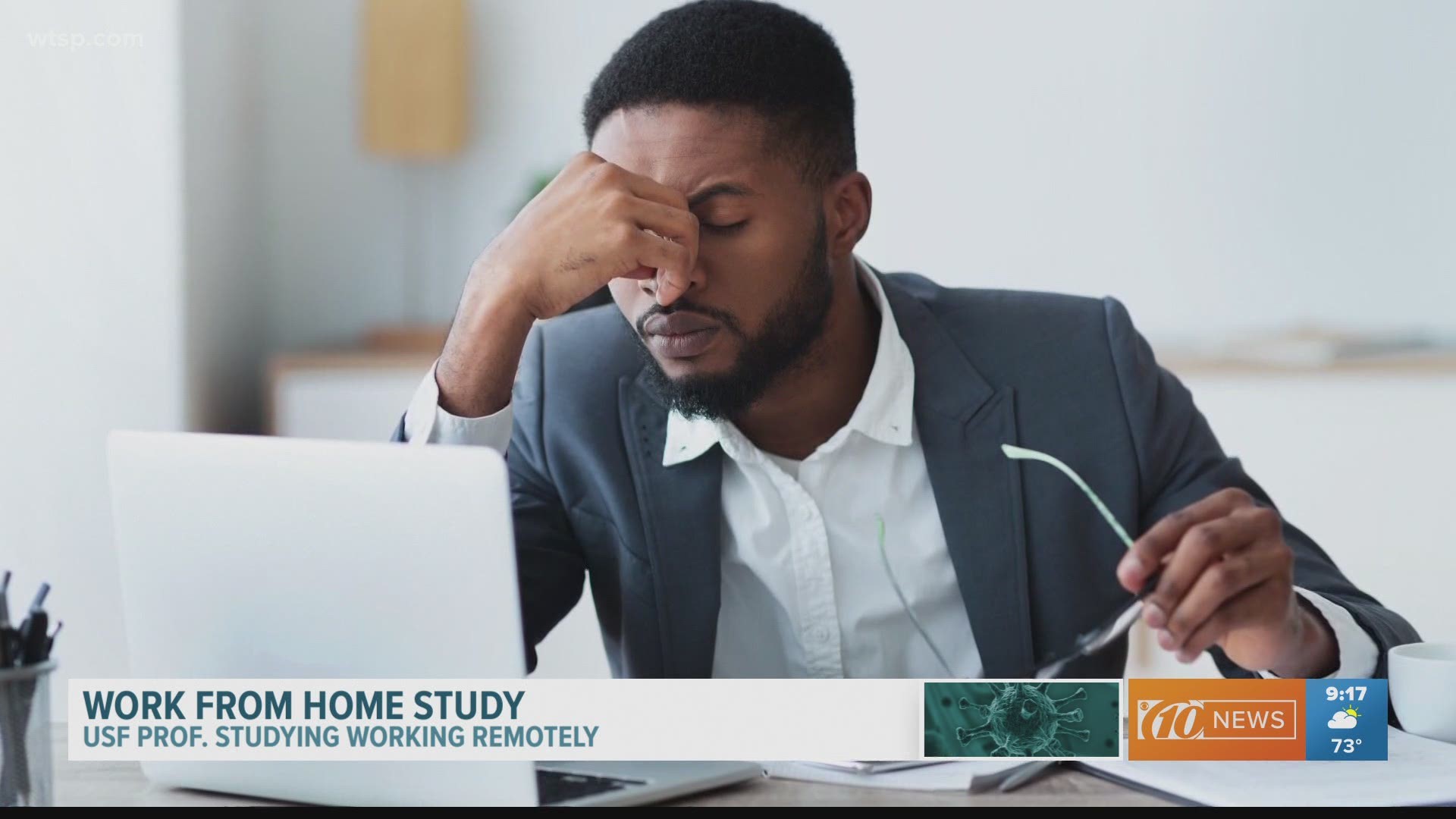TAMPA, Fla. — Working from home is not a new concept, but the coronavirus pandemic has forced millions of Americans to take their work home with them, and most had little time to prepare for the transition.
Like many things associated with the pandemic, researchers want to know more about the new work reality and how it's affecting workers.
Tammy Allen, a distinguished professor of psychology at the University of South Florida, has been studying telecommuting and working remotely for years. When the pandemic hit, she realized there was a unique opportunity for a case study.
"Millions of workers were having to rapidly shift to work from home," said Allen. "So we are examining factors such as prior experience with remote work technology, we're looking at manager support and communication, as well as information exchange among co-workers."
For this study, Allen teamed up with Kristen Shockley, a USF alumna and an associate professor of psychology at the University of Georgia. Allen and Shockley received a nearly $200,000 grant from the National Science Foundation to help with their work.
Their plan is to survey 500 participants, from different industries and living situations, over several weeks to see how they are adjusting to working from home and the types of issues they are encountering.
"We're getting comments about technology failures, comments about just how difficult it is to work from home while also caring for children, and how couples are trying to negotiate who does what throughout the day," said Allen.
But it's not just technology and workflow issues Allen and Shockley are interested in. They also want to know how working remotely is affecting people's health and well being. So, as part of their daily survey, participants discuss their nightly sleep quality and hours of sleep, as well as, any feelings of social isolation.
"That's something that's actually been identified before as a potential pitfall with remote work," says Allen.
The goal of the study is to come up with a set of recommendations that employers can then develop into remote work policies, both for normal and emergency situations like a hurricane or pandemic. They also want to know how much employees enjoy or don't enjoy working from home.
"I think we'll find that potentially managers who've been reluctant to grant employees work from home days may be more willing to do so, if they see that, yes, people can be productive and get their jobs done," said Allen. "But I think we'll also find employees who realize they would prefer to be at work. They miss that camaraderie. It's easier to look over to your co-worker and ask a quick question than to have to text or call or set up a video chat."
Allen expects to wrap up the data collection portion of the study in about five weeks. The two professors then hope to have her findings together by the end of the summer, but, Allen says, timelines can always change.
What other people are reading right now:
- Disturbance near Bahamas could strengthen into season's first tropical system
- Naples beaches to open but with shortened hours, restrictions
- People trash Cocoa Beach with 13,000 pounds of litter after it reopens
- Need a COVID-19 test in Hernando County? Here's your chance
- Report: Company behind flawed unemployment website says Florida got what it asked for
- Disney World not accepting ticket reservations before July 1
- Coronavirus in context: Florida COVID-19 cases explained in 5 charts
►Stay In the Know! Sign up now for the Brightside Blend Newsletter



